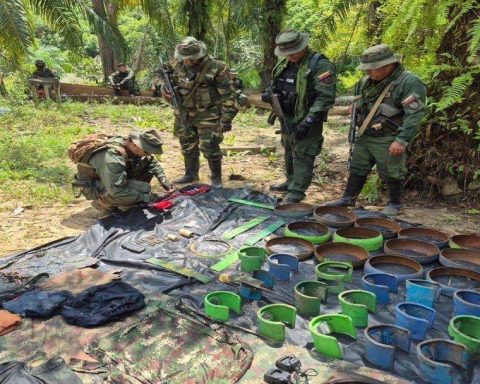The Minister of Productive Development, Matías Kulfas, affirmed this Sunday that the Government is going to “act with the weight of the law” about the sectors that in recent weeks have implemented remarks and that are going to require businessmen “to roll back prices that have no justification.”
“We are going to work chain by chain. We are going to compare the cost structure with the data reported by the businessmen and form a work table. We are a government of dialogue, but if we see that on the other side we do not find an adequate response, and there are excuses or speculative practices, we will act with the weight of the law,” Kulfas said in dialogue with FM Futurock.
And he added: “What is happening is the beginning of a new stage where we are going to ensure that this strong volatility that exists in the international market, and that adds to the problems that we have had for a long time, does not worsen. The first objective is to stabilize this situation, which is exacerbated by the rise in the cost of raw materials. In recent weeks we have seen remarks that seem unjustified and unacceptable to us and we want to discuss them with the chain to stop them immediately.
“We started a new stage. There are sectors where price increases reflect the increases that occurred in commodities. We are offering a concrete response to this sector. We are not going to allow that increase in the price of wheat to be transferred to the shelves. How? With the trust that was announced last Friday,” he stated.
He stressed that “what is happening is the beginning of a new stage where we are going to ensure that this strong volatility that exists in the international market, and that adds to the problems that we have had for a long time, does not worsen. The first objective is to stabilize this situation, which is exacerbated by the rise in the cost of raw materials. In recent weeks we have seen remarks that seem unjustified and unacceptable to us and we want to discuss them with the chain to stop them immediately.
“The minister (of Agriculture) explained it very well. Julian Dominguez, this is a transitory measure, it is to be able to finance a fund that stabilizes the price of wheat in the internal market, it is precisely to be able to take care of the table of the Argentines, to avoid such a strong transfer, it is something that we are seeing all over the world . This measure does not harm the producer. On the contrary, the producer is going to charge the price for his product linked to the international market price,” said the official.
Kulfas assured that the wheat trust “is going to compensate the price at which the flour mills will have to buy so that the greater weight of the price of wheat is not transferred in the chain, that is to say that the flour that the bakers, the noodle industry, the fractionators are going to buy is at a backward average price”.
Immediately after, he assured that “we are going to roll back the increases because there will be a trust operating that will establish that the value is no longer more than 35 thousand or 40 thousand pesos (the bag of flour), as some came to pay, but it will be something similar to what happened in February”.

“What we are doing is stabilizing price increases and bringing them back to the values that existed before, that is what the trust operates for, that is precisely what we are going to talk about with the food sector. And on the other hand, there is the question of some increase that does not have a justification in cost increases because they have a speculative component and we are going to be very harsh in that this has to be stopped immediately, ”he asserted.
Kulfas said that “We need to give more certainty and greater expectations to the future sowing of wheat. Wheat has become, in the international market and in our particular market, a precious commodity because this sad war affects two wheat producing countries”, because about 30% of world wheat exports come from Ukraine and Russia.
“We considered that it was better to fund this trust on the side of the soybean complex, especially considering that this is going to be paid by the six, seven main exporters in the soybean sector, and give the wheat producer a positive expectation so that he increases his sowing, has better conditions for what is to come. So there we can expect an exit that is always on the side of more production, more exports. This is the scheme that has been generated and what was explained between yesterday and the day before yesterday”, he added.
He explained that “To be tough is to use persuasion and the tools that the Executive Power has, which is the Supply Law, the Law for the Defense of Competition and other mechanisms to take care of consumers. In the pandemic, at the worst moment, we have used them and they gave an important result in the first stage”.
The minister also announced that during This week the Secretary of Domestic Trade, Roberto Feletti, “is going to announce specific measures on local businesses.”
“We are seeing a huge dispersion of prices that seems unacceptable to us. There is a high degree of compliance with careful prices in supermarkets, which is the traditional mouth of this program, and then that same product in nearby stores appears with high prices, those are issues that we are going to order, ”he said.
“We are going to demand that businessmen roll back prices that have no justification, we are also going to apply this trust, which is a way to compensate for this increase in costs. There we are going to organize the chain and other sectors where we see a significant imbalance. If we see that there are unjustified rises and despite the measures taken there is no readjustment of this scheme, we will take drastic measures”, he concluded.

















